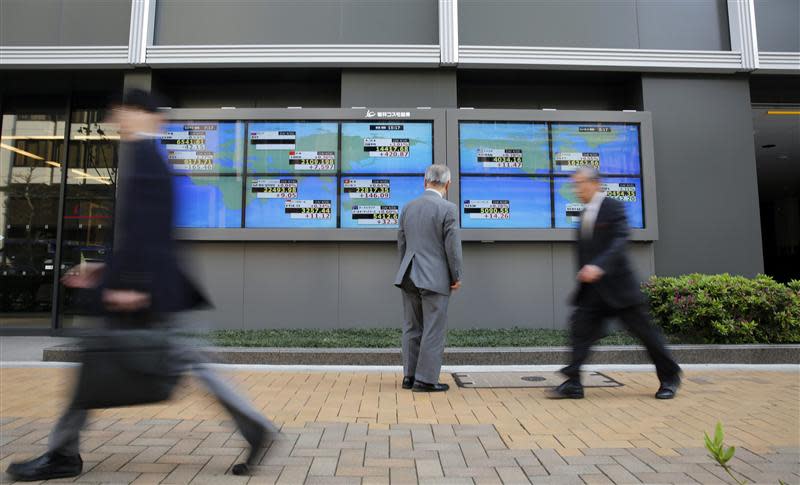Asia shares falter on China PMI, bonds in demand
yahoofinance
SYDNEY (Reuters) - Asian share
markets took a turn lower on Monday after a survey of Chinese
manufacturing disappointed, while the simmering conflict in Ukraine kept
gold and bonds well bid.
Early
gains evaporated when HSBC's final reading of its April PMI eased back
to 48.1 from an initial 48.3, though it was still up a tick on March.
At
least the services industry fared better, according to a separate
official PMI released on Saturday. That measure rose to 54.8 in April
from 54.5 in March, the National Bureau of Statistics said.
Investors
seemed inclined to accentuate the negative and Shanghai shares slipped
0.75 percent (.SSEC) while Taiwan eased 0.1 percent (.TWII).Australia's market reversed course to be down 0.2 percent (.AXJO), while MSCI's broadest index of Asia-Pacific shares outside Japan dipped 0.3 percent.
Market holidays in Japan and South Korea thinned trade, as did caution over the crisis in Ukraine.
Pro-Russian militants stormed a Ukrainian police station in Odessa on Sunday and freed nearly 70 fellow activists, two days after over 40 pro-Russian activists died in a blaze at a building they had occupied.
The
tensions were cited as one reason for a rise in gold prices, which
pushed up another $5 to $1,305.56 an ounce, after bouncing over $14 on
Friday.
On Wall Street, the
Dow (.DJI) ended Friday 0.28 percent lower, while the S&P 500 (.SPX)
lost 0.13 percent and the Nasdaq (.IXIC) 0.09 percent.
Still, all the indices were up for the week. The Dow and S&P both added 0.9 percent, and the Nasdaq 1.2 percent.
The soft finish on Friday was a disappointment given the strength of the U.S. payrolls report.The increase of 288,000 in U.S. jobs was the largest since January 2012 and handily above forecasts. Unemployment dropped to 6.3 percent, though largely because of a steep fall in participation as more people left the labor force.
INFLATION ABSENT
Crucially for bonds, there were scant signs of inflationary pressure in the report with average weekly earnings unexpectedly soft, just the latest evidence of muted wages growth.
The general absence of price pressures has helped longer-dated Treasuries rally hard in recent weeks with yields on 30-year paper diving to 10-month lows on Friday.
That in turn has sharply narrowed the gap between short- and long-term yields, a flattening of the curve that points to a marked lessening in inflation fears.
All of which is one
reason investors still assume the Federal Reserve will be in no hurry to
raise interest rates. The futures market generally has a first move
penciled in for the middle of next year and a slow-paced tightening
thereafter.
"For the Fed, the
recent data is strong enough to validate the status quo - ongoing $10bn
per meeting tapering and the first rate hike in Q2 or Q3 next year,"
said analysts at Commonwealth Bank of Australia.
"But
pointing in the other direction is the general patchiness of data in
recent months, ongoing tensions in the Ukraine, excessive short
positioning and perhaps a loss of bullish sentiment in U.S. equities."
The
fall in U.S. yields has also undermined support for the dollar, which
notably failed to sustain a post-jobs rally on Friday. Against the yen,
the dollar drifted down to 101.88, having retreated from a near
one-month peak of 103.03 on Friday.The euro was steady at $1.3869 having recovered from a low of $1.3812 on Friday. The dollar index (.DXY) also eased to 79.474. It had initially rallied to a high of 79.852 on Friday, only to then slide as deep as 79.469.
Among commodities, oil prices were mixed in slow trade. U.S. crude futures gained 4 cents to $99.80 a barrel while Brent crude eased 16 cents to $108.43.
prince bikram shah
pgdm 1st

No comments:
Post a Comment